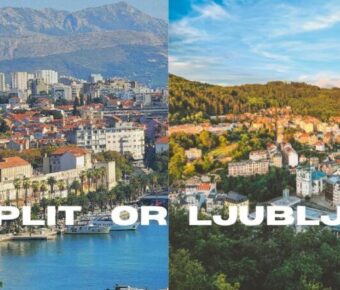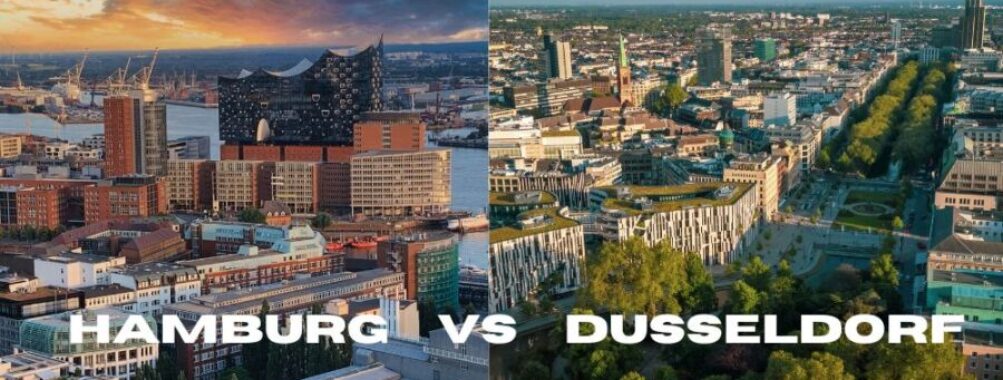
Hamburg vs Dusseldorf: 7 Key Differences Between Germany’s Rival Cities Revealed
Hamburg and Düsseldorf are two of Germany’s most captivating cities, each with its own distinct character and charm. These northern powerhouses offer visitors completely different experiences. Hamburg amazes with its massive port and maritime heritage, while Düsseldorf dazzles as a modern art and fashion capital along the Rhine.
The rivalry between these cities goes beyond their tourist attractions. Hamburg’s historic Speicherstadt warehouse district tells tales of seafaring trade, while Düsseldorf’s sleek Media Harbor showcases cutting-edge architecture. The contrast extends to their food scenes too – Hamburg’s fresh seafood versus Düsseldorf’s traditional Altbier breweries.
These urban centers both rank among Germany’s wealthiest cities, yet they maintain very different vibes. Hamburg embraces its rough-around-the-edges port city identity, while Düsseldorf polishes its reputation as a sophisticated cultural hub.
Table of Contents
- Geographical Overview
- Historical Significance
- Founding and Development
- Cultural Heritage
- Economic Landscape
- Industry and Business
- Job Market
- Technological Advancements
- Cost of Living
- Housing Market
- Consumer Prices
- Transportation Costs
- Transportation and Accessibility
- Public Transport Systems
- Private Vehicle Usage
- Bike and Pedestrian Paths
- Cultural Comparison
- Food and Cuisine
- Festivals and Events
- Art and Music Scenes
- Sports and Recreation
- Local Sports Teams
- Outdoor Activities
- Leisure Amenities
- Living in Hamburg vs Düsseldorf
- Advantages of Hamburg
- Advantages of Düsseldorf
- Personal Privacy Considerations
- Frequently Asked Questions
- What unique attractions does Hamburg offer compared to Düsseldorf?
- How do the cultural experiences in Düsseldorf differ from those in Hamburg?
- What transportation options are available for traveling between Hamburg and Düsseldorf?
- In terms of local cuisine, how do the culinary scenes of Hamburg and Düsseldorf compare?
- Can you highlight the historical significance of Hamburg in contrast to Düsseldorf?
- What are the notable differences in nightlife between Hamburg and Düsseldorf?
- Book Your Dream Experience
- More Travel Guides
Geographical Overview

Hamburg sits proudly in northern Germany as the country’s second-largest city. The city spreads across 755 square kilometers along the River Elbe, making it significantly larger than Düsseldorf in terms of area.
Düsseldorf occupies a prime spot in western Germany’s North Rhine-Westphalia region. The city lies along the Rhine River and covers a more compact area, perfect for exploring on foot or by bike.
Both cities feature rivers as their lifelines. Hamburg’s port – the largest in Germany – defines much of its layout and character. The Alster Lakes in Hamburg’s center create a unique urban landscape that sets it apart from other German cities.
Düsseldorf’s geography splits naturally into two main areas: the right bank of the Rhine features the historic Altstadt (Old Town), while the left bank hosts modern business districts and residential neighborhoods.
The flat terrain of both cities makes them easy to navigate. Hamburg’s numerous canals and bridges give it a Venice-like quality, while Düsseldorf’s riverside promenade offers stunning views of the Rhine.
The cities enjoy different weather patterns due to their locations. Hamburg’s northern position brings maritime influences and more rainfall, while Düsseldorf experiences slightly milder temperatures and more sunshine hours during autumn months.
Historical Significance
These two German cities have rich histories spanning many centuries, with Hamburg’s maritime legacy and Düsseldorf’s evolution from a small fishing village to a cultural powerhouse shaping their unique identities.
Founding and Development
Hamburg traces its roots back to 808 CE when Charlemagne ordered the construction of a castle. The city grew into a powerful member of the Hanseatic League, dominating northern European trade.
The port played a crucial role in Hamburg’s growth. By the 13th century, it became a free imperial city, giving it special trading privileges and autonomy.
Düsseldorf started as a modest settlement in the 7th or 8th century. The city gained prominence in 1288 when Count Adolf V granted it town privileges.
During the 14th century, Düsseldorf became the capital of the Duchy of Berg, marking its transformation into a regional power center.
Cultural Heritage
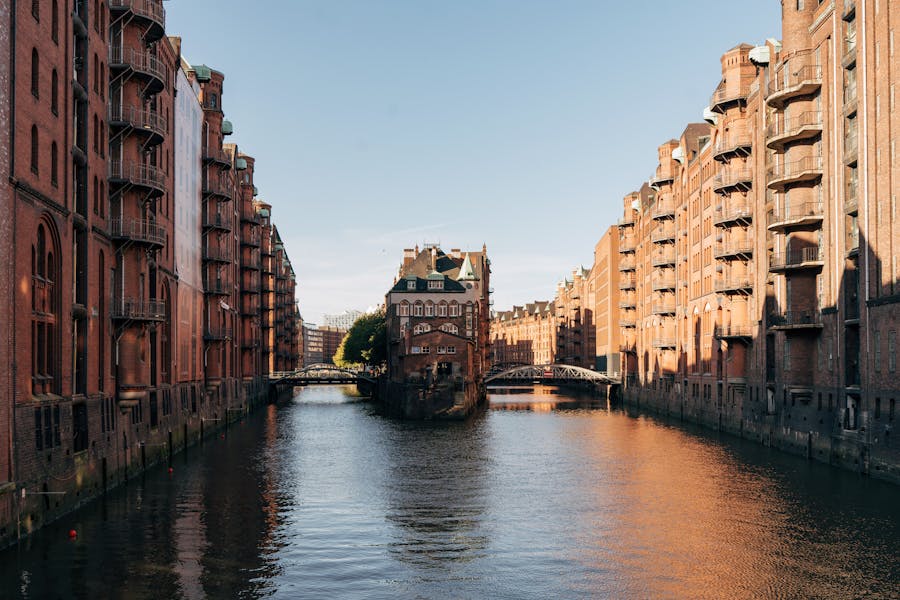
Hamburg’s maritime culture shapes its identity through iconic landmarks like the Speicherstadt warehouse district, now a UNESCO World Heritage site.
The Great Fire of 1842 led to Hamburg’s rebuilding in neo-Gothic style, creating unique architectural treasures like the Rathaus and Chile House.
Düsseldorf emerged as an art and fashion hub in the 18th century under Elector Jan Wellem’s patronage. The city’s renowned art academy, founded in 1773, attracted creative talents from across Europe.
The Altstadt (Old Town) reflects Düsseldorf’s cultural legacy with its historic buildings and the nickname “longest bar in the world” due to its 300+ bars and breweries.
Economic Landscape
Both Hamburg and Düsseldorf stand as major economic powerhouses in Germany, each with distinct business strengths and unique market advantages. These cities attract global companies and skilled professionals through their robust infrastructures and strategic locations.
Industry and Business
Hamburg shines as Europe’s third-largest port city, making it a crucial hub for maritime trade and logistics. The city’s economy revolves around shipping, aerospace manufacturing, and media industries. Major companies like Airbus and Gruner + Jahr call Hamburg home.
Düsseldorf functions as a key financial center and hosts numerous advertising agencies, fashion companies, and telecommunications firms. The city’s Medienhafen district attracts creative businesses and startups. Japanese companies have established a strong presence here, with over 400 firms choosing Düsseldorf as their European base.
Both cities maintain strong retail sectors. Hamburg’s HafenCity showcases modern urban development with premium shopping areas. Düsseldorf’s Königsallee, known as ‘Kö’, ranks among Germany’s most exclusive shopping streets.
Job Market
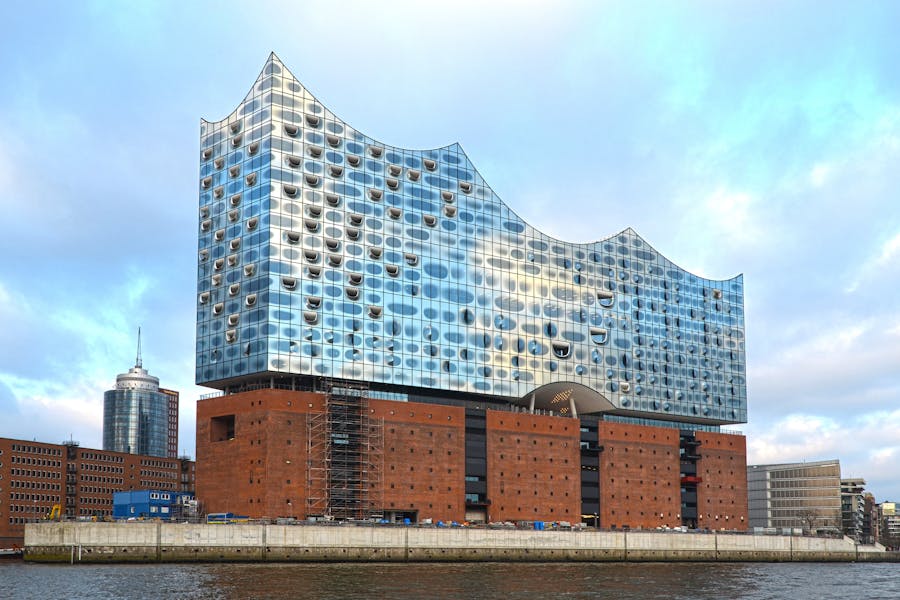
Hamburg offers diverse employment opportunities in port operations, aviation, and digital media. The city’s startup scene creates jobs in tech and innovation sectors.
Düsseldorf boasts lower unemployment rates and competitive salaries. The average after-tax income covers living expenses for 1.9 months, slightly better than Hamburg’s 1.7 months.
The cost of living varies between cities. Düsseldorf proves 8% less expensive than Hamburg, with lower prices for restaurants, groceries, and rent.
Technological Advancements
Hamburg leads in renewable energy tech and smart port solutions. The city invests heavily in digital infrastructure and hosts several tech incubators.
Düsseldorf excels in telecommunications and digital transformation. The city’s IT cluster includes major tech companies and innovative startups.
Both cities feature high-speed internet networks and smart city initiatives. Hamburg focuses on port automation, while Düsseldorf emphasizes digital business solutions.
Cost of Living
Living costs in Hamburg and Düsseldorf show notable differences in 2025, with Hamburg being about 8% more expensive across most spending categories. The cities rank among Germany’s priciest places to live.
Housing Market
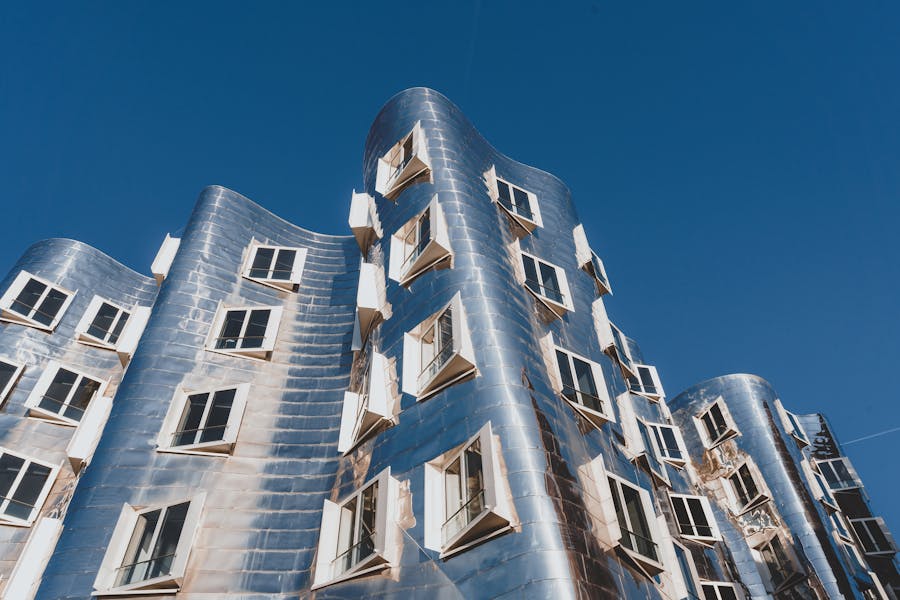
Rental prices in Hamburg sit higher than Düsseldorf, making a significant impact on monthly expenses. A one-bedroom apartment in Hamburg’s city center costs around €1,200-1,500, while similar units in Düsseldorf average €900-1,200.
The housing market in both cities stays competitive due to high demand from young professionals and students. Hamburg’s port-city status drives prices up in waterfront areas.
Living space tends to be more affordable in Düsseldorf’s outer districts compared to Hamburg’s suburbs.
Consumer Prices
Daily essentials cost less in Düsseldorf than Hamburg. Grocery shopping runs about 5% cheaper in Düsseldorf’s supermarkets.
Restaurant meals in Düsseldorf cost around €12-15 for lunch, while Hamburg’s prices reach €15-18 for similar options.
Both cities share the same 19% VAT rate on purchases. Local markets offer fresh produce at competitive prices in both locations.
Transportation Costs
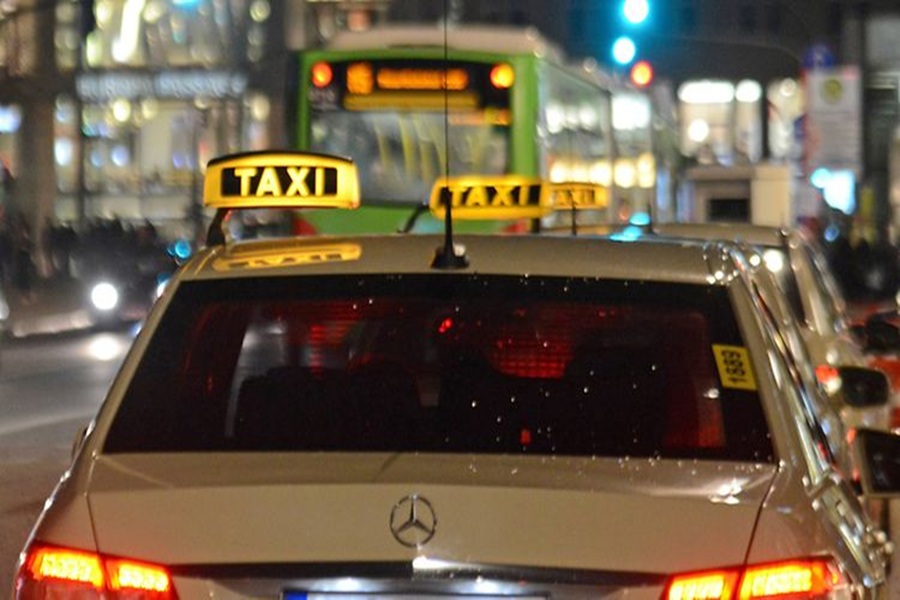
Public transit passes in Hamburg cost €89 monthly, slightly above Düsseldorf’s €77 rate. Both cities offer extensive bus and rail networks.
Taxi fares start at €3.50 in Hamburg versus €3.20 in Düsseldorf. Per-kilometer rates also run higher in Hamburg.
Car ownership brings extra costs through parking fees, which average €150 monthly in Hamburg’s central areas. Düsseldorf’s parking rates typically run 15-20% lower.
Cycling serves as a budget-friendly option in both cities, with well-maintained bike lanes and affordable bike-sharing programs.
Transportation and Accessibility
Both Hamburg and Düsseldorf offer excellent transportation networks that make getting around simple and efficient. Each city puts its own unique spin on mobility options, from extensive public transit to bike-friendly streets.
Public Transport Systems
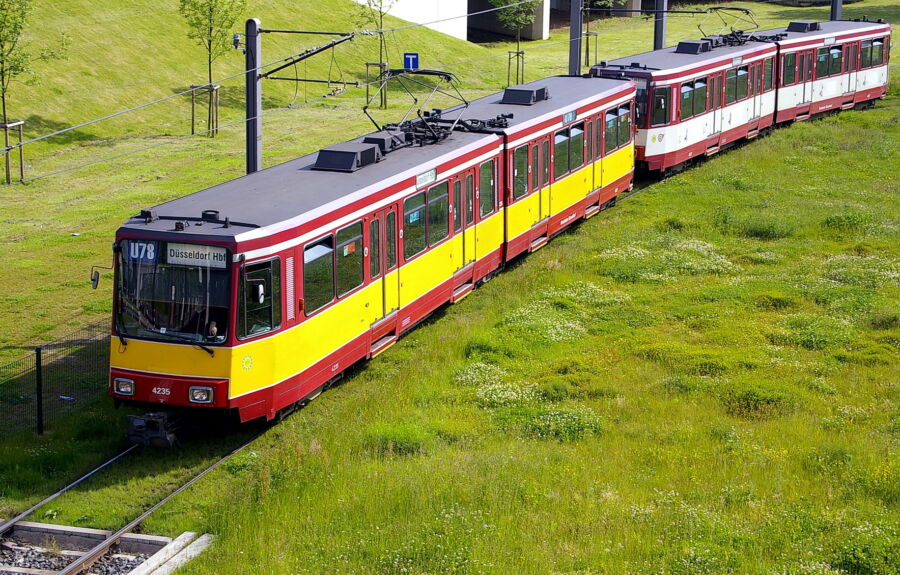
Hamburg’s public transport network spans across the city with U-Bahn (subway) and S-Bahn (suburban rail) lines. The HVV system connects all major areas and runs like clockwork.
The city’s modern buses complement the rail network, reaching spots the trains don’t cover. Night buses keep the city moving after hours.
Düsseldorf’s transport system is more compact but equally reliable. The Rheinbahn operates trams, U-Bahn lines, and buses throughout the city center and suburbs.
Both cities use integrated ticketing systems. You can hop between different types of transport with a single ticket. Hamburg’s prices tend to be slightly higher than Düsseldorf’s rates.
Private Vehicle Usage
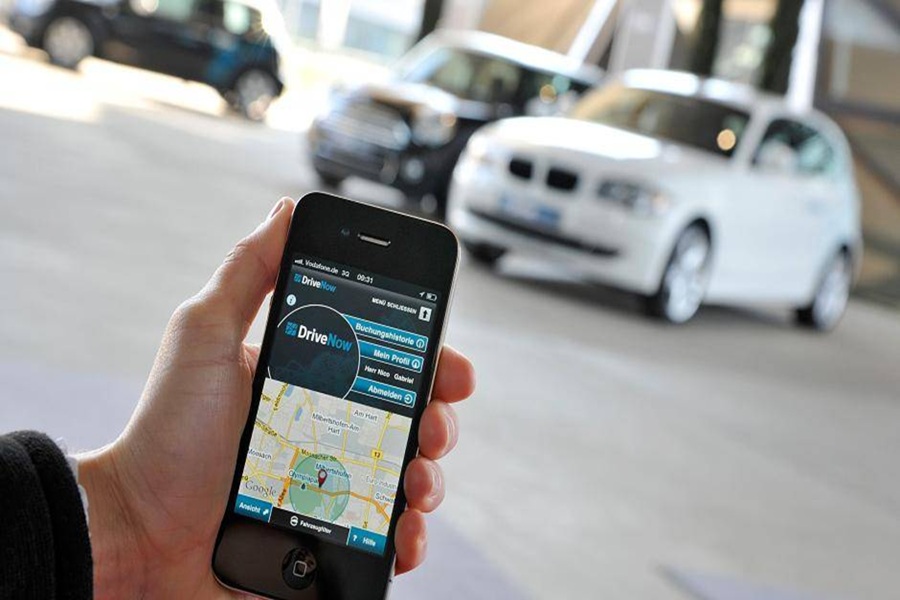
Driving in Hamburg requires patience during rush hour. The city sees more traffic congestion than Düsseldorf, especially around the harbor area.
Parking in Hamburg’s city center can be tricky and expensive. Many streets have resident-only zones.
Düsseldorf offers better parking options and less congestion. The city’s ring road system helps traffic flow more smoothly.
Car-sharing services are popular in both cities. DriveNow and Car2Go have good coverage areas.
Bike and Pedestrian Paths

Hamburg shines with its extensive cycling network. The city boasts over 1,700 kilometers of bike paths, including scenic routes along the Elbe River.
The StadtRAD bike-sharing system makes it easy to grab a bicycle at numerous stations across Hamburg.
Düsseldorf’s cycling infrastructure is growing fast. The Rhine promenade offers beautiful car-free paths for bikes and pedestrians.
Both cities have pedestrian-friendly zones in their historic centers. Wide sidewalks and car-free shopping areas make walking pleasant and safe.
Cultural Comparison
Both Hamburg and Düsseldorf offer rich cultural experiences that shape daily life in these vibrant German cities. Each has its own distinct character, from unique food traditions to thriving arts communities.
Food and Cuisine
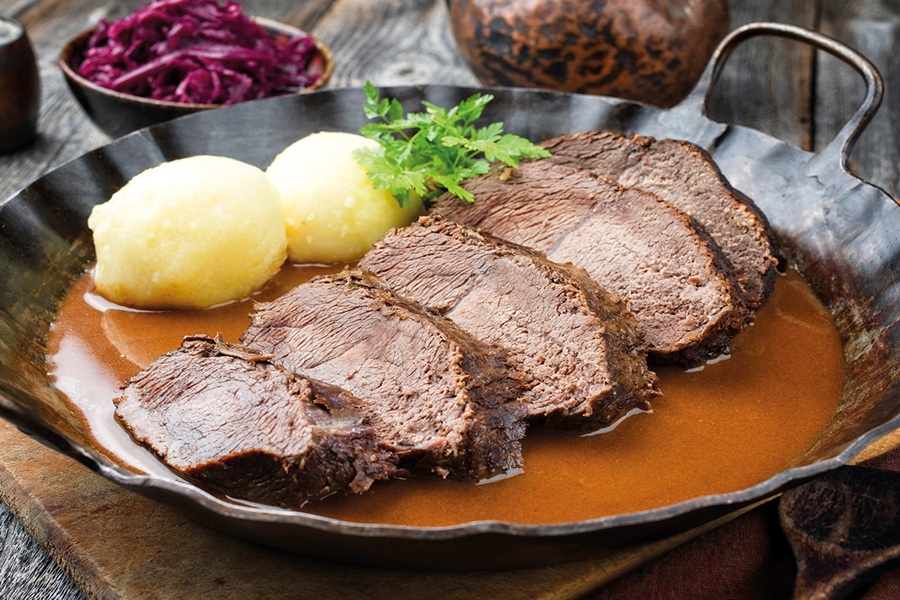
Hamburg’s seafood-focused cuisine reflects its maritime heritage. The city’s signature dish, Fischbrötchen (fish sandwiches), can be found at stalls along the harbor. Local restaurants serve fresh North Sea catches like plaice and herring.
Düsseldorf’s culinary scene centers around traditional Rhineland cooking. The city is famous for its Altbier, a dark top-fermented beer served in the cozy brewhouses of the Altstadt district.
Traditional Brauhaus culture thrives in both cities. Hamburg specializes in hearty sailor’s fare, while Düsseldorf offers Rheinischer Sauerbraten and Himmel un Äd (black pudding with mashed potatoes and apples).
Festivals and Events
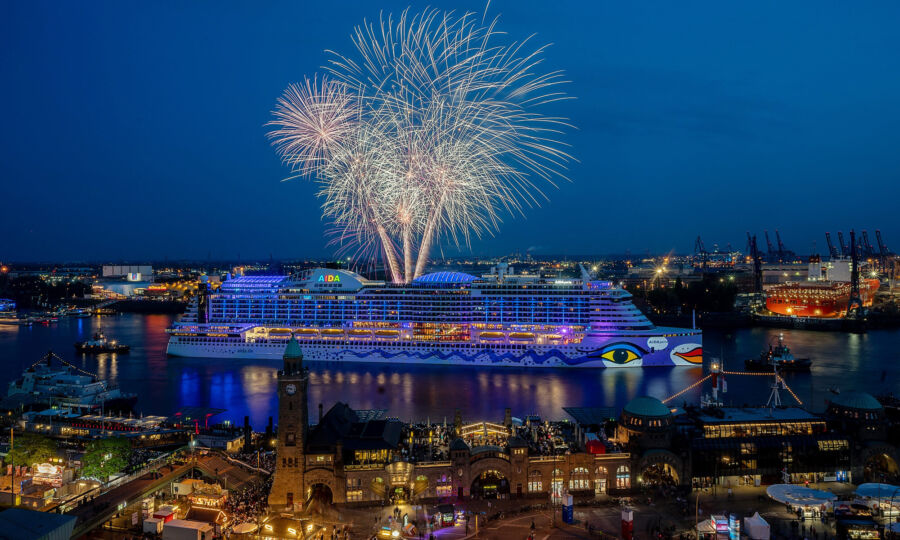
Hamburg hosts the massive Hafengeburtstag port festival each May, drawing over a million visitors. The three-day celebration features tall ships, fireworks, and maritime performances.
Düsseldorf’s carnival season brings colorful parades and costumes to the streets each February. The city’s Japan Day festival celebrates its large Japanese community with food, music and fireworks.
Summer brings open-air concerts to Hamburg’s Stadtpark and beach clubs along the Elbe River. Düsseldorf’s Rhine Fun Fair transforms the riverbank into a massive carnival each July.
Art and Music Scenes
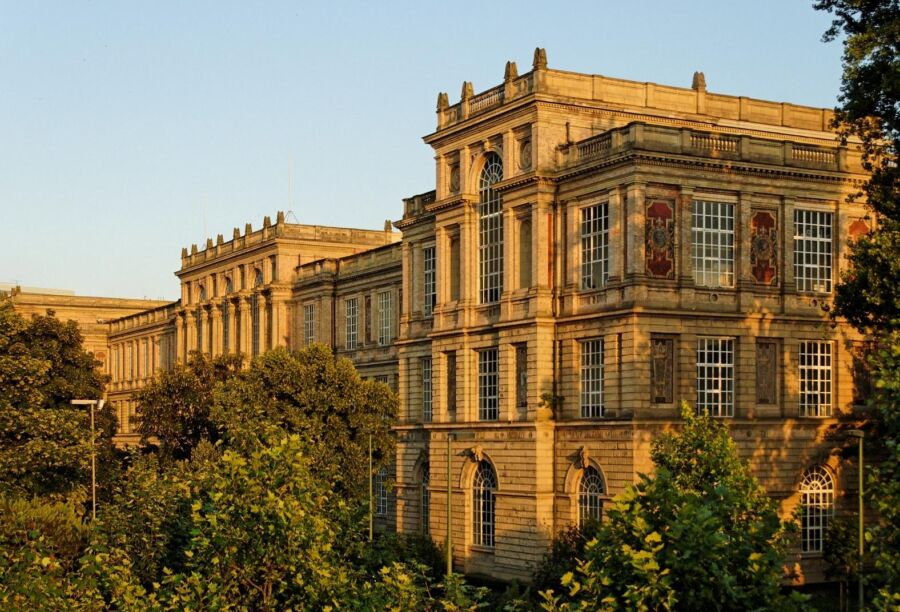
Hamburg’s Elbphilharmonie concert hall anchors a thriving classical music scene. The Reeperbahn district pulses with live music venues and nightclubs.
Düsseldorf’s Kunstakademie art academy has produced many famous artists. The city’s contemporary galleries cluster in the Flingern district.
Electronic music fans flock to Hamburg’s underground clubs. Düsseldorf proudly claims its role as birthplace of electronic pioneers Kraftwerk. Both cities support experimental art spaces and independent galleries.
Sports and Recreation
Both cities offer exciting sports scenes and many ways to stay active. Hamburg and Düsseldorf each have great pro teams, beautiful parks, and top-notch sports facilities.
Local Sports Teams

Hamburg SV plays in the 2. Bundesliga at the impressive Volksparkstadion, which holds over 57,000 fans. The stadium hosts major soccer matches and creates an electric atmosphere on game days.
FC St. Pauli is Hamburg’s other beloved soccer club, known for its unique fan culture and skull-and-crossbones logo. Their home games at Millerntor-Stadium draw passionate crowds.
Düsseldorf’s main soccer team, Fortuna Düsseldorf, competes in the 2. Bundesliga at Merkur Spiel-Arena. The 54,600-capacity venue transforms into a sea of red and white during matches.
Outdoor Activities
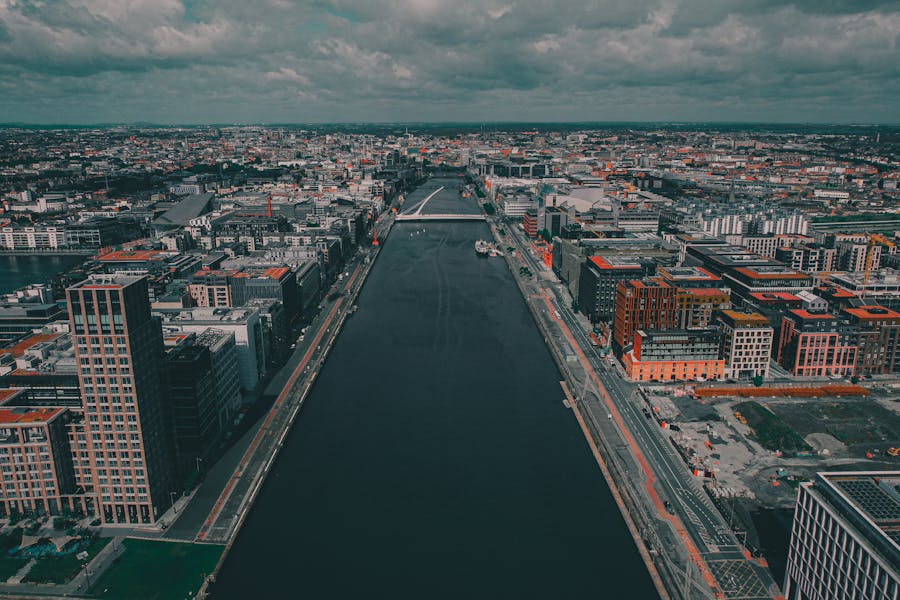
The Elbe River in Hamburg provides spots for kayaking, sailing, and beach volleyball along its shores. The city’s Alster Lakes let visitors try stand-up paddleboarding or take peaceful boat rides.
Düsseldorf’s Rhine Promenade stretches for miles with cycling paths and walking trails. The Rhine River hosts water sports in warmer months.
Both cities maintain large urban parks perfect for jogging, picnics, and outdoor fitness. Hamburg’s Stadtpark and Düsseldorf’s Hofgarten offer green spaces to exercise and unwind.
Leisure Amenities
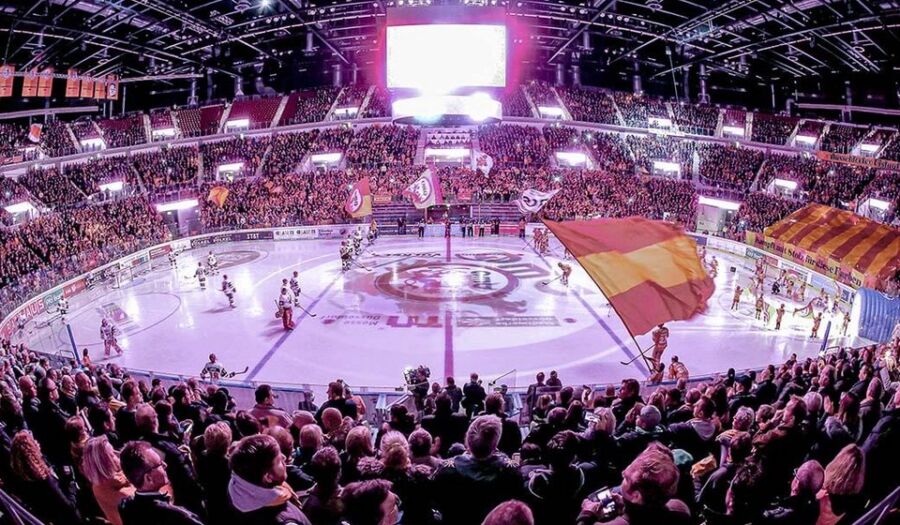
Hamburg boasts several modern public pools and sports centers. The MidnightSports program gives teens free access to gyms and courts on weekend nights.
Düsseldorf’s ISS Dome hosts ice hockey games and skating sessions. The city runs many public tennis courts and fitness areas.
Both cities feature climbing gyms, yoga studios, and recreation centers in most neighborhoods. Hamburg edges ahead with more large sports facilities that can seat over 20,000 people.
Living in Hamburg vs Düsseldorf
Both cities offer distinct lifestyles and advantages, with Hamburg’s maritime charm competing against Düsseldorf’s central European connectivity and business focus. Life in these cities differs in cost, culture, and daily experiences.
Advantages of Hamburg
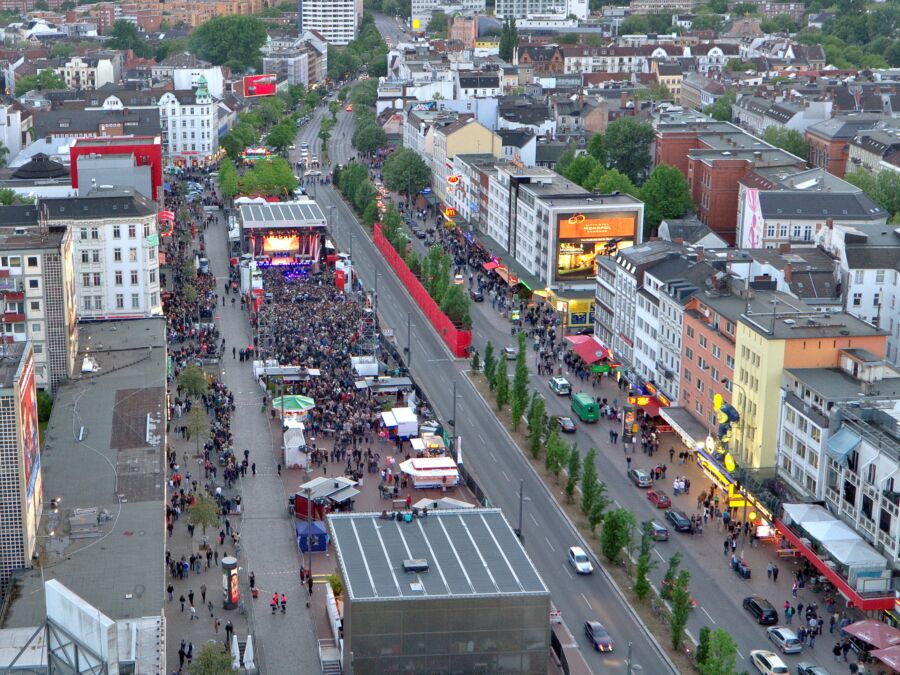
Hamburg shines as Germany’s second-largest city with its stunning waterfront location. The city’s port heritage creates a unique maritime atmosphere with beautiful lakes, canals, and the River Elbe.
Living costs are slightly higher than Düsseldorf, but residents get more entertainment options. The famous Reeperbahn district and numerous theaters make nightlife exciting.
The city boasts excellent public transportation. Green spaces like the Planten un Blomen park give residents plenty of outdoor recreation spots.
The job market is strong in maritime industries, media, and aerospace. Hamburg’s economy stays stable even during tough times.
Advantages of Düsseldorf
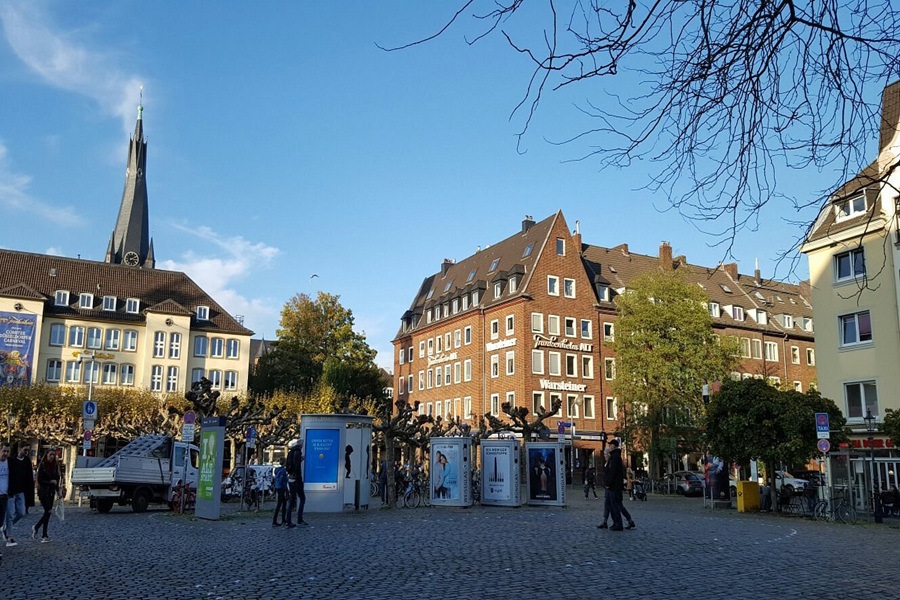
Düsseldorf wins on transportation connections. You can reach Paris in 4 hours by train and Brussels in 2.5 hours. The city has two nearby airports – DUS and CGN.
Living costs are 4.4% lower than Hamburg, with rent prices 3.9% below Hamburg’s rates. Restaurant meals cost 8.9% less too.
The Rhine promenade offers lovely spots for walking and dining. The famous Altstadt (Old Town) has tons of bars and restaurants in a compact area.
The city excels in fashion, advertising, and telecommunications jobs. Its Japanese community adds great cultural diversity and authentic Asian restaurants.
Personal Privacy Considerations
Both cities respect German privacy laws, but their approaches differ slightly. Hamburg’s spread-out nature offers more personal space and privacy in daily life.
Düsseldorf’s compact size means you’ll bump into people more often. Many apartment buildings are closer together than in Hamburg.
Both cities follow strict data protection rules for residents. You’ll find good options for private living spaces in either place.
The smaller size of Düsseldorf makes it harder to stay anonymous. Hamburg’s larger area and population make it easier to blend in if you value privacy.
Frequently Asked Questions
Both Hamburg and Düsseldorf offer distinct experiences as major German cities, from unique port culture to modern art scenes, with each having its own special charm and attractions.
What unique attractions does Hamburg offer compared to Düsseldorf?
Hamburg’s most famous attraction is the Speicherstadt, the world’s largest warehouse district built on timber-pile foundations. This UNESCO World Heritage site shows off stunning brick architecture and houses fascinating museums.
The Elbphilharmonie concert hall stands as a modern architectural marvel, combining old warehouse foundations with contemporary design. Its viewing platform gives amazing city views.
HafenCity represents one of Europe’s largest urban development projects, mixing modern architecture with maritime heritage.
How do the cultural experiences in Düsseldorf differ from those in Hamburg?
Düsseldorf’s Kunstsammlung K20 and K21 museums showcase world-class modern and contemporary art collections. The city’s Japanese community adds unique cultural elements not found in Hamburg.
The Königsallee, or “Kö,” offers high-end shopping and people-watching opportunities. This famous boulevard reflects Düsseldorf’s fashion-forward personality.
The Altstadt (Old Town) packs over 260 bars into a small area, earning its nickname as “the longest bar in the world.
What transportation options are available for traveling between Hamburg and Düsseldorf?
High-speed ICE trains connect the cities in about 4 hours. Multiple departures run daily from early morning until late evening.
Domestic flights take around 1 hour and provide a quick alternative. Several airlines operate this route multiple times per day.
Long-distance buses offer budget-friendly travel between the cities, though journey times can exceed 6 hours.
In terms of local cuisine, how do the culinary scenes of Hamburg and Düsseldorf compare?
Hamburg specializes in fresh seafood dishes, with local favorites like Fischbrötchen (fish sandwiches) and Pannfisch (pan-fried fish).
Düsseldorf takes pride in its Altbier, a unique top-fermented beer native to the region. The city also serves excellent traditional Rhineland dishes like Himmel un Äd.
Each city puts its own spin on German cuisine, with Hamburg focusing on northern specialties while Düsseldorf embraces Rhineland flavors.
Can you highlight the historical significance of Hamburg in contrast to Düsseldorf?
Hamburg’s history as a Hanseatic League trading port shaped its development into Germany’s second-largest city. Its maritime heritage remains visible throughout its architecture and culture.
Düsseldorf grew from a small fishing village into an industrial powerhouse during the 19th century. Its transformation into a modern business hub happened much later than Hamburg’s rise to prominence.
What are the notable differences in nightlife between Hamburg and Düsseldorf?
The Reeperbahn in Hamburg offers Germany’s most famous entertainment district. Countless music venues, theaters, and clubs spread across several streets.
Hamburg’s St. Pauli neighborhood attracts diverse crowds. They are looking for alternative scenes and live music spots.
Düsseldorf’s nightlife centers around the Altstadt. Its concentrated mix of traditional beer halls, modern clubs, and cocktail bars creates a more compact party zone.
